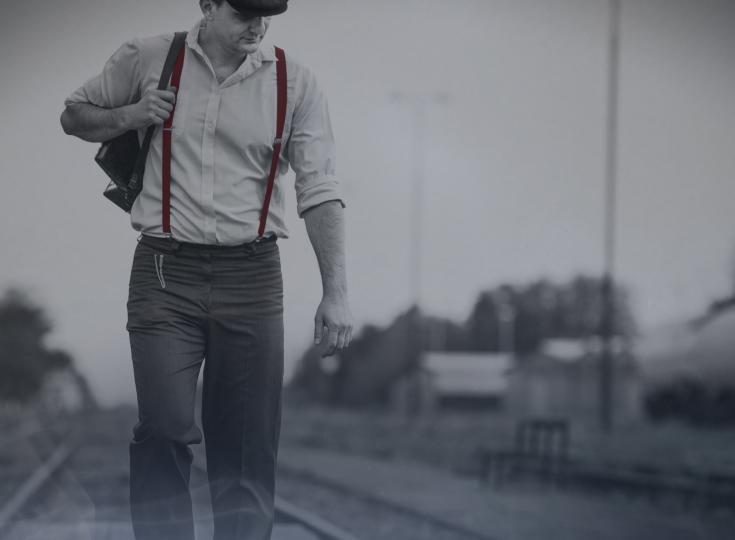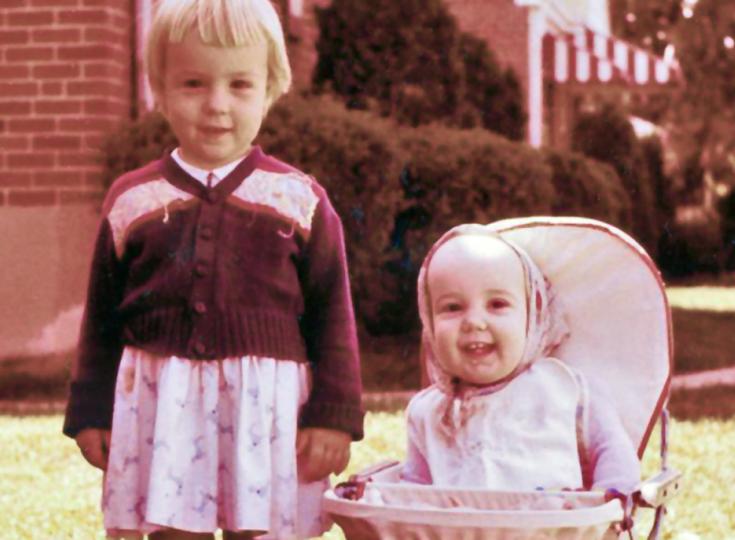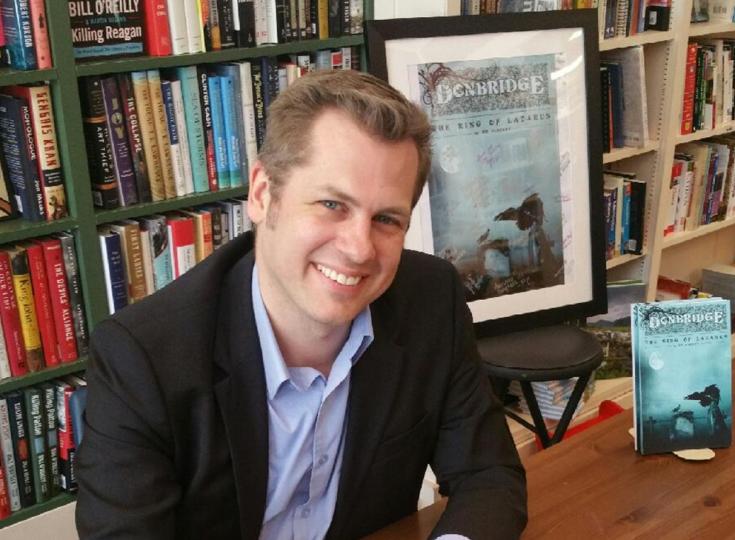V.R. Christensen - Classically Inspired Romantic Historical Fiction
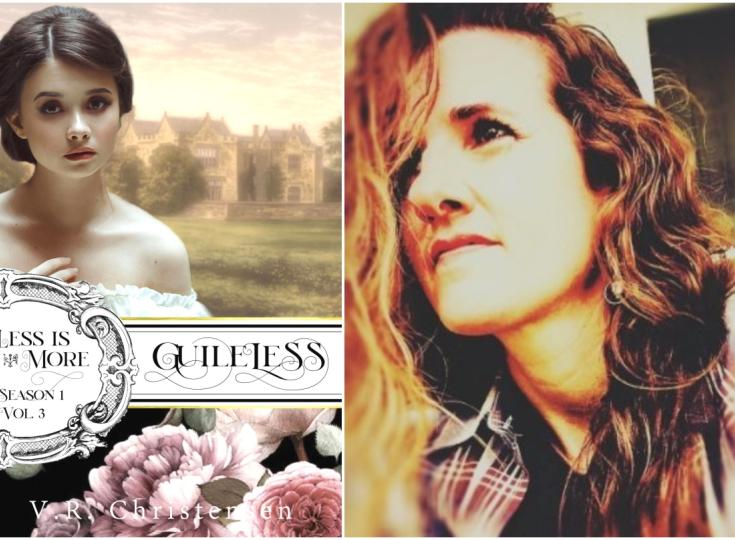
V.R. Christensen writes classically inspired romantic historical fiction and steampunk dystopian novels of depth and sensitivity. V.R.’s historical romances have been multiple-time bestsellers and have been compared to Jane Austen and Charles Dickens (a literary lovechild, perhaps?) V.R. is half English and resides in the United States, though she spends a majority of her time immersed in late-Victorian classic literature and costume dramas. Her work has been described as “masterful for its genre” and “gorgeous”—“like a river flowing through a beautiful landscape that is sometimes light, sometimes dark and threatening.” As our Author of the Day, she tells us all about her book, Guileless.
Please give us a short introduction to what Guileless is about.
Guileless is about a young woman growing up in a house with four brothers. She's been raised by a father who considers all women silly and education dangerous for a girl whose mind is inherently fragile and all too easily set off-kilter. Even Antonia believes in her stupidity to some extent and has played along with the charade and her father's plans to keep the peace. It's only when one of her brothers, having been expelled from University, returns home with a lawyer friend, that she begins to reconsider the direction of her life and whether she really wants to stay on the path her father has laid out for her, which plan includes her engagement to a gentleman a little too much like him.
What inspired you to write this story? Was there anything in particular that made you want to tackle this?
In part it was because 2020 was so heavy, and the year following it, too. I'd lost my sister to a drug-related car accident, and I had suffered a recent injury to boot, so I was in something of a funk. I've had enormous success with my previous historical fiction pieces, and it really has always been what I like to write (and read) the most. Then the most recent dramatization of Jane Austen's Emma came out, and I devoured it. I watched it eight times, I think, and in doing so remembered how much I love to write in that genre, and so I decided to go back to it. It's true, as well, that I seem to have an obsession with tackling the issues of injustice and inequality in late Victorian life, particularly as it regards women and purity culture. Guileless was actually the idea of my amazing editor, Kendra Nelson. She likes these topics as well as I do, and she was particularly keen on seeing what I would do with a houseful of men. It was honestly one of the harder things I've done. I typically write scenes between two people. In this book there are many scenes that involve a whole roomful of people. Keeping track of their thoughts, motivations, dialogue, and mindsets was daunting.
Tell us more about Antonia Gibson. What makes her tick?
Antonia is, at heart, a peacemaker. She wants love and acceptance in a house where male purpose and masculinity are championed and femininity is sidelined. Her mother is rather silly, and so, to some extent, her father has daily reassurance that his theories in regard to women is a correct one. Antonia, however, longs for an education, for the games and adventures her brothers enjoy. She steals their school books and joins them when she's allowed in their play. The consequences of her culpability begin to become clear, however, when she meets two gentlemen in one day, one being he whom her father and brothers would wish her to marry, the other being a schoolmate of her rebellious and troublemaking brother Tom. It thereafter becomes clear she must prepare herself for a battle to claim the right to choose her own happiness. I think in many ways Guileless was an attempt for me to examine my own codependent tendencies and the dangers of giving up your own will for the sake of pleasing others--something I'm profoundly guilty of and which, when I do it, feels like the bitterest of self-betrayals.
Besides writing, what other secret skills do you have?
Oh, goodness. I seem to collect hobbies, actually. I teach yoga. I just graduated from Massage Therapy school, so I'm doing that now, as well. I love antiques and collect chairs in particular. I reupholster and repair them, and sort of collect them, especially if they are weird or unusual. I like to craft--any craft, really. I paint a little and do some mixed media, upcycling kind of art (mostly with watch pieces). I sew and embroider and crochet (I can't seem to learn to knit). I love historic homes and have owned a few, including my present 1922 Craftsman, and I've learned to do almost any repair work required. I just recently acquired chickens, and so I've been learning to do some urban farming. I love learning new things. I think I'll always be picking up and putting down hobbies, just for the fun of gaining new skills and seeing what I can create with my hands and my mind.
This book is volume three of season one of the Less is More books. Can it be read as a standalone? How do the other books in the series tie in with this one?
The books are all intended to stand alone. The stories take place in the village of Hadleigh in the south of England, and each book addresses one family or heroine and her conflict. Here and there the other characters flit in and out of the story, either introducing themselves or reacquainting themselves with the reader.
Do any of your characters ever go off on their own tangent, refusing to do what you had planned for them?
For sure! I like to outline before I write, but I've found I can only outline so far. Particularly in my Icarus Project series, characters go off script all the time. Often conversations I have between my characters reveal things I had not planned. I know what I want a dialogue to achieve, but sometimes things that come up during those conversations reveal things even I hadn't considered.
What was your greatest challenge when writing this book?
The sheer number of characters, particularly when they gathered in the scenes: the dinners, the parlor conversations, the croquet match, parties, and particularly the teas. It was such a challenge to remember where each person was in their heads and what their reactions would reasonably be to any dialogue or action taking place. I honestly had to write this book twice from beginning to end because it was such a challenge to keep a proper bookmark on multiple simultaneous character developments.
How much research did this book require from you to make the history part of it ring true? What was the most interesting aspect of this research?
I've kind of devoured all the classical literature I can find between Jane Austen's time and George Meredith's. In many ways, I feel I've immersed myself in that world. Apart from that, I've read countless etiquette guides and housekeeping books of the times, books on marriage and law, too, all in preparation to write my first series, which included Of Moths and Butterflies. When I started these books, I didn't really do anything extra apart from what I had already researched and collected. These books aren't as serious as those in my first series, and so, at least at first, I didn't go very far out of my way to do more. In Guileless, however, I did look for actual text books and magazine articles that reflected the attitudes of the day regarding women and education. The book is set during the protests at Cambridge which demanded the University give degrees to women. They chose not to, of course, but the arguments both for and against really informed the prevailing attitudes and opinions of the characters in this book. The most interesting research I did, however, was for Fearless, in which I needed some palliative medicinal for a dying cancer patient. I learned a whole lot about marijuana use during the Victorian era that I did not know about before and which really surprised me.
What are you working on right now?
At the moment, I'm taking a bit of a break. I've had some family drama to contend with, and so my mental capacity is taxed. By mid-August, however, I hope to have chosen the next project. Guileless is part of the first season of the Less is More series. I have two books of the next season planned, and I'm kind of champing at the bit to get started on those. I also have a dystopian series I need to finish. The pandemic left me feeling like life was dystopian enough without having to write about it, too, so I've taken a long break from that. It's been difficult to market as an unfinished project, so it may be time to finish that up.
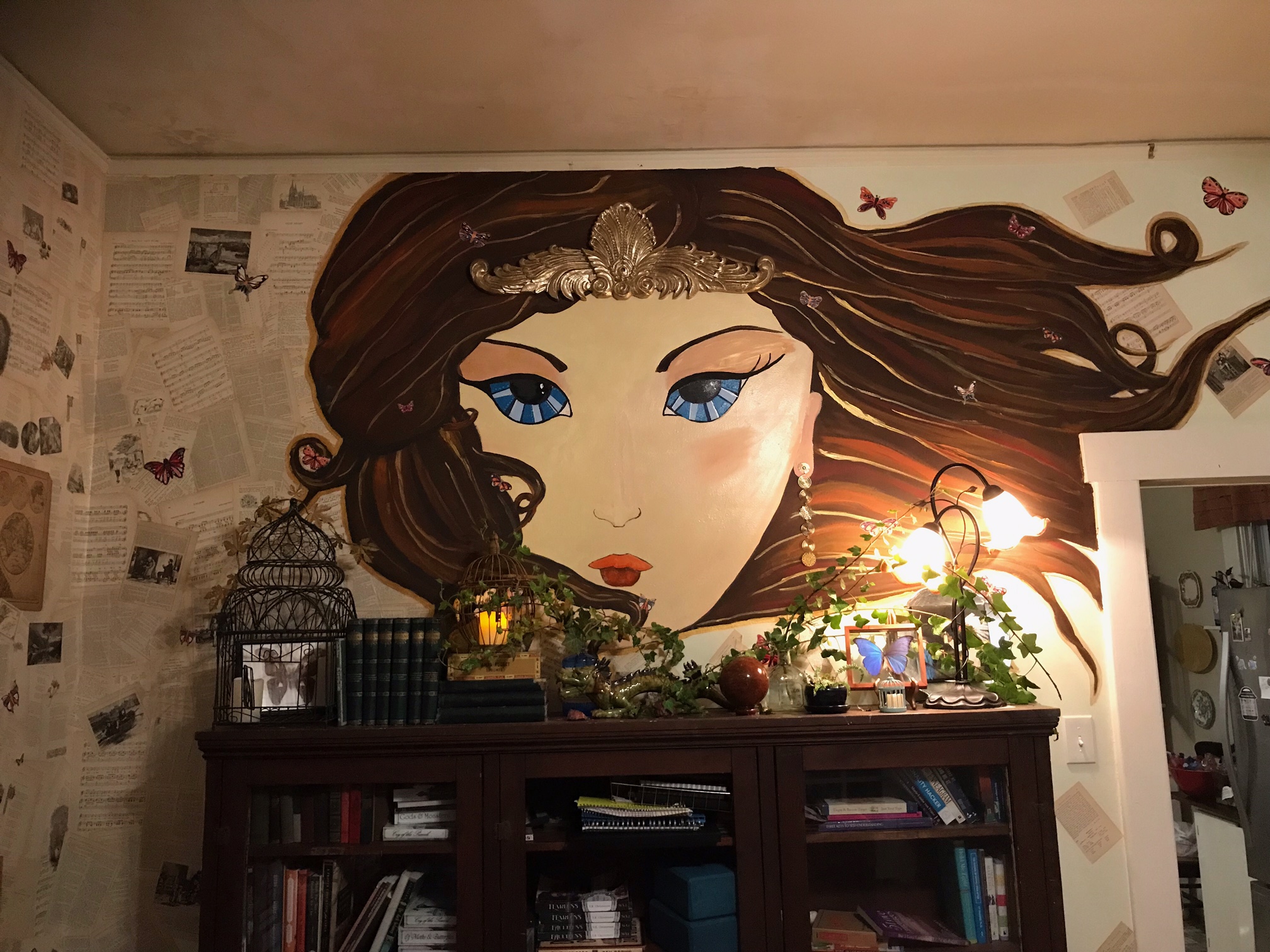
Where can our readers discover more of your work or interact with you?
The best place is my website. www.vrchristensen.com. You can either visit that, or, one better, sign up for my newsletter. I don't send out as often as I probably should, but if I have a promotion or any big news, like the publication of a new book (or series), I like to let my readers know. I also do the occasional blog post that I like to share, particularly when it's research based. I have a presence on Facebook, as well, but I struggle to keep up with it.
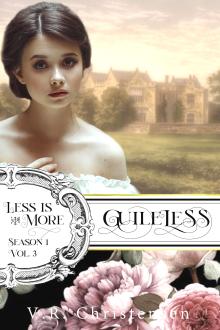
Antonia Gibson is generally considered to be a silly girl unpossessed of a mind of her own. Such qualities keep her silent when her overbearing brothers contrive to manipulate her into an engagement with a gentleman for whom she can summon no warm feelings. It takes a stranger to help her see what she is and what she is not and that it is time to fight for her own happiness. But at what cost?
